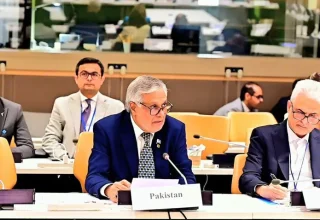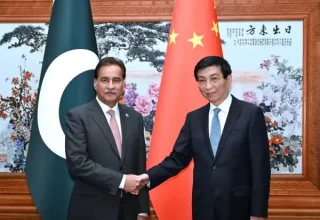
By Rohail Riaz
Pakistan, known as a democratic country since 1947, has remained an underdeveloped nation for many decades. Although a large number of graduates, including doctors, engineers, and social scientists, are produced every year. Only in 2023-24, 0.5million doctors are produced by Pakistan, likewise on average 2000 PhD scholars and 25000 engineers earn their degree every year. But many of them remain unemployed. According to the Pakistan Bureau of Statistics (2023), the youth unemployment rate reached 6.3%. which accounts for around 4.51 million people. Interestingly, the unemployment rate among males is considerably higher than that of females, indicating a gender-based disparity within Pakistan’s labor force. This alarming situation highlights a serious gap between education and employment opportunities in the country. Despite producing a highly qualified workforce each year, Pakistan struggles to create enough avenues for their practical engagement and professional growth.
In today’s highly competitive job market, a university degree alone no longer ensures a successful or well-reputed career. One key reason is that many universities in Pakistan, even some of the most prestigious ones, do not make internships a mandatory part of their academic programs. Their primary focus remains on grades and theoretical performance rather than practical exposure. Consequently, when fresh graduates step into the professional world, they often find themselves unprepared for real-world challenges and unfamiliar with workplace dynamics. In contrast, the trend in Pakistan’s job market tells a different story. Employers today value practical experience and professional skills far more than academic achievements. As a consequence, a large number of graduates struggle to find employment despite their educational qualifications. This will drastically increase the unemployment ratio and create a gap between academia and job entitlement.
To cope with this growing challenge and eradicate the unemployment ratio in Pakistan, several institutions play their own role, including the Higher Education Commission, think tank institutes, and universities. There’s a strong need to take such kind of actions by creating a strong connection between academia and industry. Universities must include an internship as a mandatory component in the structure of their academic program. Similarly, the Higher Education Commission (HEC) has established a policy whereby degrees are not awarded to students who fail to fulfill the internship requirement during their academic tenure. This approach plays a crucial role in enhancing students’ professional competence and self-confidence while equipping them with essential hands-on experience prior to graduation.
In the last, I would like to conclude my article with the view that there’s only one option to overcome this challenge — by introducing internships as a mandatory part of the academic structure. By doing this, students will not only earn their degrees but also gain experience and become familiar with workplace dynamics. This will also help reduce the unemployment ratio among educated youth. Therefore, the state, think tanks, and other relevant institutions must pay serious attention to this issue and take practical steps to strengthen the link between education and employment. Only then can Pakistan’s young generation truly transform its potential into progress.




































